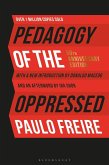"One would have to be truly stupid to enjoy this book, as it has no value whatsoever! Derek R. Ford has written a book with a surprisingly subversive thesis that demands an equally surprising endorsement. If the left is to challenge the knowledge economy, it must recognize the collective power of stupidity as a refusal to instrumentalize, measure, and thus commodify education in the name of capitalist value production. Drawing on a wide variety of sources ranging from Karl Marx to Édouard Glissant and others, Ford produces a unique genealogy of stupefying pedagogies that enable social movements to claim the opacity and incomprehensibility of stupidity as resistant to the ignorance and arrogance of educators on the right and the left." -Tyson E. Lewis, Professor of Art Education, University of North Texas, USA.
This book is the first to articulate and challenge the consensus on the right and left that knowledge is the key to any problem, demonstrating how the left's embrace of knowledge productivity keeps it trapped within capital's circuits. As the knowledge economy has forced questions of education to the forefront, the book engages pedagogy as an underlying yet neglected motor of capitalism and its forms of oppression. Most importantly, it assembles new pedagogical resources for responding to the range of injustices that permeate our world. Building on yet critiquing the Marxist notion of the general intellect, Derek R. Ford theorizes stupidity as a necessary alternative pedagogical logic, an anti-value that is infinitely mute and unproductive.
Derek R. Ford is Assistant Professor of Education Studies at DePauw University, USA. He's published five monographs and six edited volumes. Among other projects, Ford is also the editor of LiberationSchool.org.
Dieser Download kann aus rechtlichen Gründen nur mit Rechnungsadresse in A, B, BG, CY, CZ, D, DK, EW, E, FIN, F, GR, HR, H, IRL, I, LT, L, LR, M, NL, PL, P, R, S, SLO, SK ausgeliefert werden.
"Is stupidity nothing but a bad thing, holding human society back from its full potential? On the contrary, Ford says not only is stupidity an inseparable partner to learning, but it also holds the potential to be used for revolutionary resistance against the capitalist system which exploits the working class and knowledge itself." (Jasmine B Timmester, Policy Futures in Education, Vol. 20 (7), 2022)
"A worthwhile contribution for educational researchers and theorists, and for students andscholars entangled in these discussions. It provides a much-needed critical approach to the Marxists and anti-Marxists regarding pedagogy, the knowledge economy, and the general intellect. Indeed, this is the first book to challenge the consensus on the right and left that the leftist understanding of knowledge as the key to many problems causes knowledge productivity to stay within capital's circuits." (Jianxin Guo, Jingxian Tang, Lei Zheng and Cong Wang, Education as Change, Vol. 26, 2022)
"Ford's major critique in the book is that at the present moment Marxists are united with the ruling class in their belief in learning ... . The pedagogical function of learning begins with ignorance and moves into learning in never-ending spiral thus creating a constant expansion of the general intellect that capital can profit from ... . To counter this never-ending spiral, Ford puts forth the pedagogical form of stupidity." (Collin Chambers, Capital & Class, February 27, 2022)
"Ford's work in Marxism, Pedagogy, and the General Intellect: Beyond the Knowledge Economy (2021) superbly shakes up the fields of education that have seemingly permanently moved away systems-wide/structuralist theories. Ford problematizes the very ideal of learning as a politically universal social value, as well as the idea that by simply democratizing knowledge we somehow counter the exploitation of capital." (Marco M Laghi, Postdigital Science and Education, November 25, 2021)
"Ford deftly intertwines disability justice with anti-capitalism in an intuitive way, his analysis of the history of the knowledge economy is concise and informative, and his diagnosis of the problem on both left and rightside feel very cogent." (Calla Winchell, Midwestern Marx, midwesternmarx.com, November 11, 2021)









